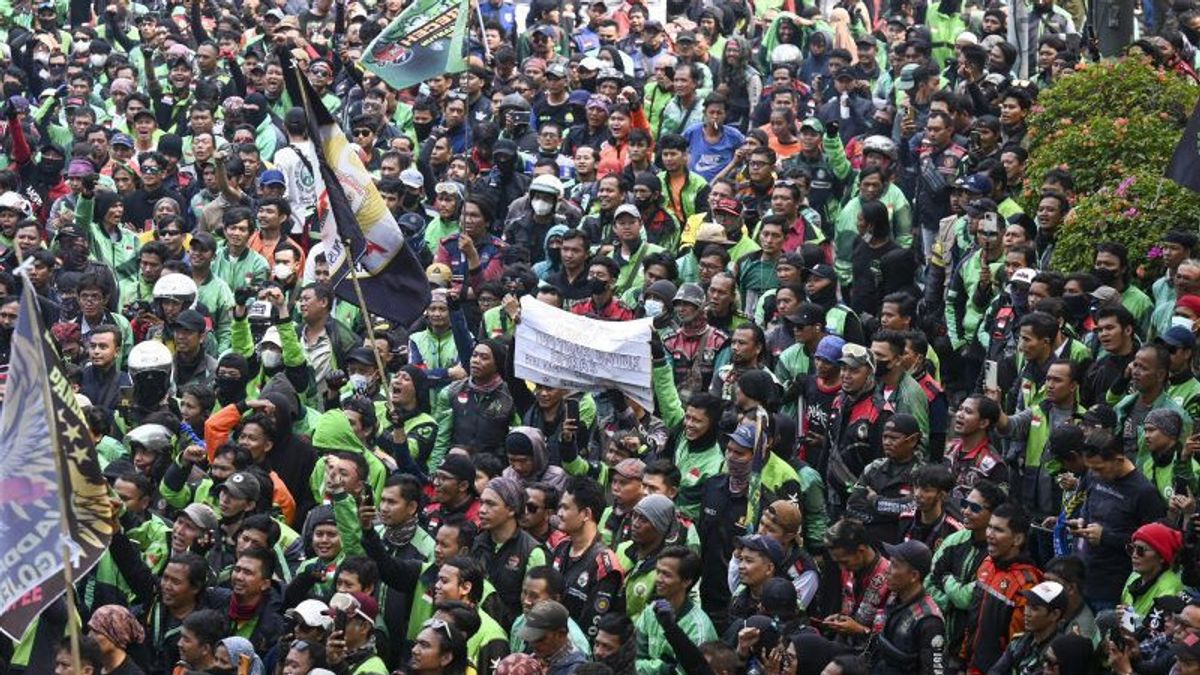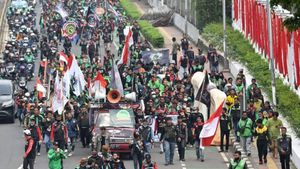JAKARTA - Director of the Digital Economy Center of Economic and Law Studies (Celios) Nailul Huda assessed that the demands of online motorcycle taxi partners (ojol) who want legality status for online ojol workers and couriers can have a negative impact on the workers themselves.
The reason, said Nailul, is that ojol, which is part of non-permanent workers or gigs, really focuses on the flexibility of time at work.
"I understand that their demands will also lead to worker status for online motorcycle taxi drivers, where they can get the rights they demand. However, again the problem is when the status of workers is, the form of the contract is not as a gig worker anymore. They can lose their work flexibility and so on," said Nailul as quoted by ANTARA, Friday, August 30.
The formalization of ojol workers, he continued, could also trap ojol drivers in work traps with low quality without any agreement to develop their abilities.
According to Nailul, the real problem is not in public transportation status.
Because, from the start there were no problems regarding public transportation status or not on the base motorcycle taxi.
The issue of legalizing ojol has been rolling since 2023, when the Ministry of Manpower (Kemenaker) submitted a draft of the Online Ojek Permenaker. Because at that time, the majority of ojol drivers refused to limit working hours to a maximum of 12 hours.
"Restrictions on working hours will be detrimental to us, because they are not flexible," said Gograber Indonesia Chairman Ferry Budhi during a demonstration in front of the Ministry of Manpower Building, Jakarta.
Previously, the Minister of Transportation (Menhub) Budi Karya Sumadi agreed that the status and all the provisions regarding ojol, including the welfare of ojol drivers, were regulated on the legal basis at the level of the law.
"One good suggestion so that the basis for the law is made, we agree to enforce it, we are also very concerned with what the ojol asked for," said Budi Karya.
According to Budi, there needs to be provisions in the Law on the protection and welfare of ojol drivers. This is because currently the number of ojol vehicles is very large and affects public transportation and public connectivity.
"What (ojol income) is really needed by their families. There are even those with disabilities, we appreciate them," he said.
SEE ALSO:
Currently, Law Number 22 of 2019 concerning Road Traffic and Transportation (LLAJ) has not regulated the use of two-wheeled vehicles as a means of public transportation to transport passengers or goods.
The regulations related to two-wheeled vehicles are currently only regulated in the ministerial regulation level, namely the Minister of Transportation Regulation Number 12 of 2019.
The English, Chinese, Japanese, Arabic, and French versions are automatically generated by the AI. So there may still be inaccuracies in translating, please always see Indonesian as our main language. (system supported by DigitalSiber.id)












